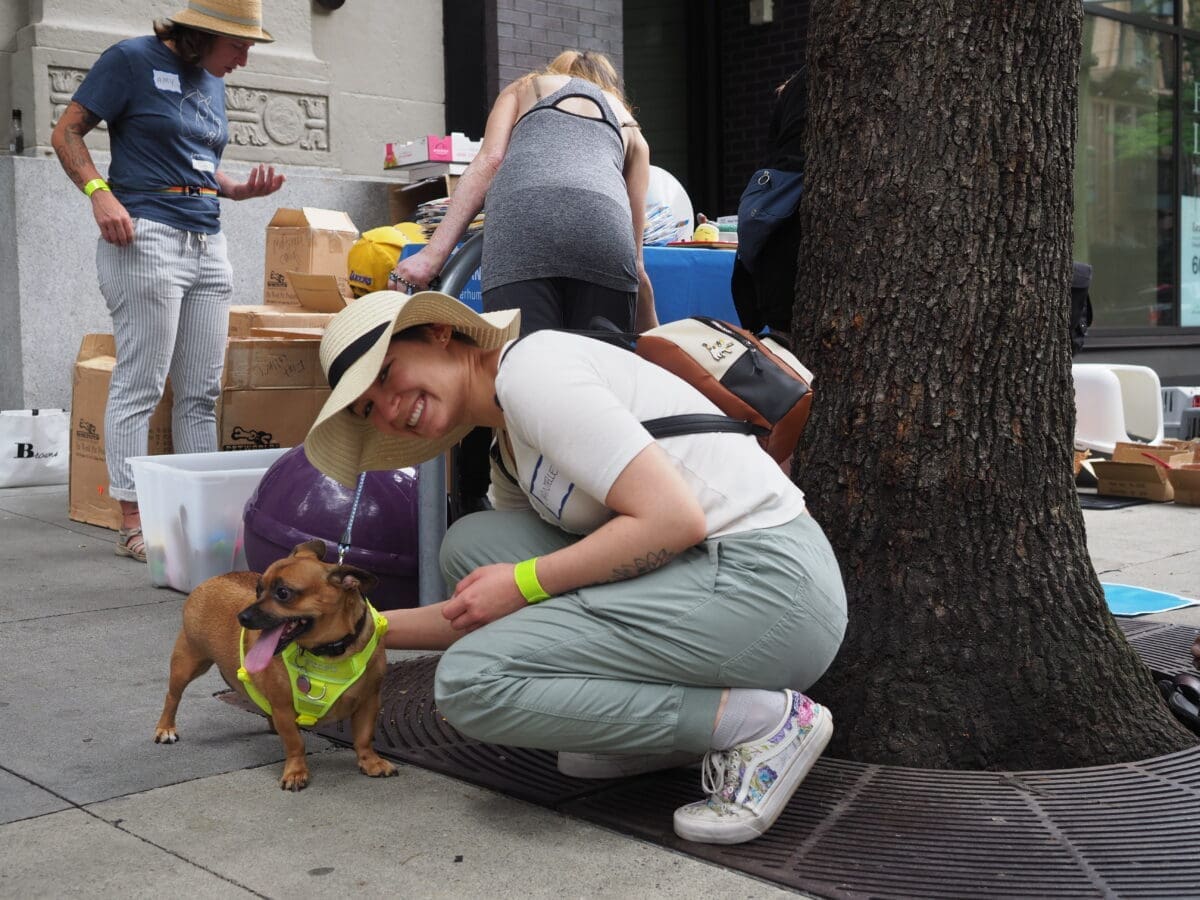Article originally published in the Daily Hive.
This past weekend, I was in the Downtown Eastside sharing emergency veterinary resources and handing out pet supplies as part of the Vancouver Humane Society’s Because They Matter event. The tables were laden with bright new leashes, harnesses, and toys, tempting treats, and sturdy carriers and litter boxes.
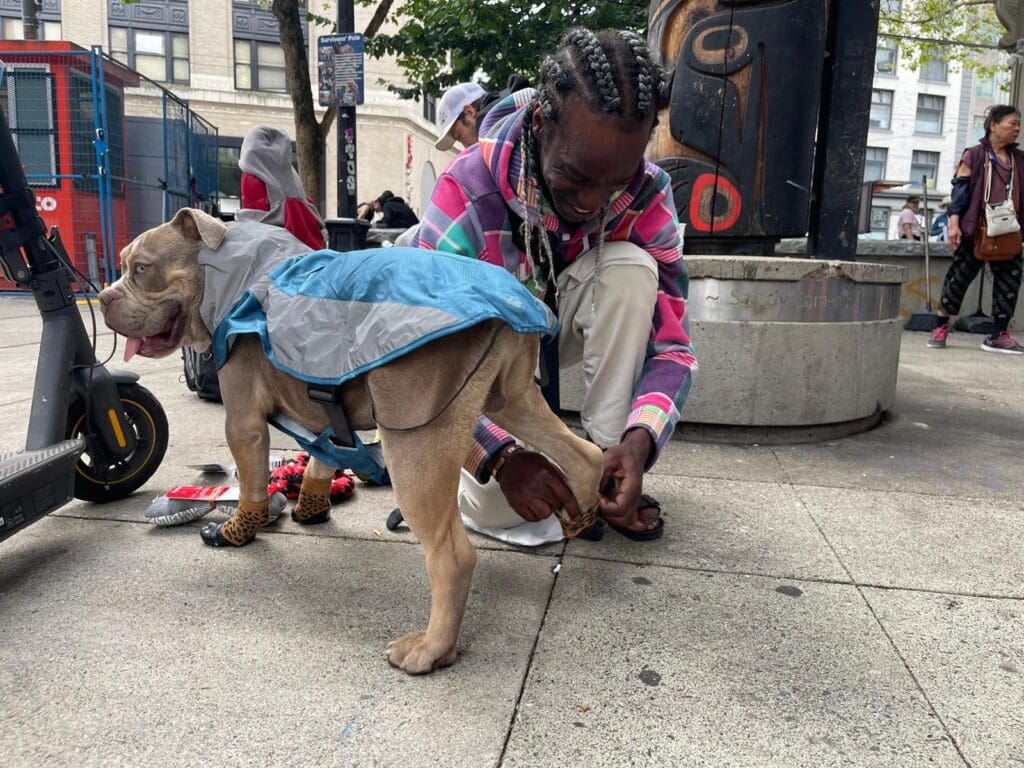
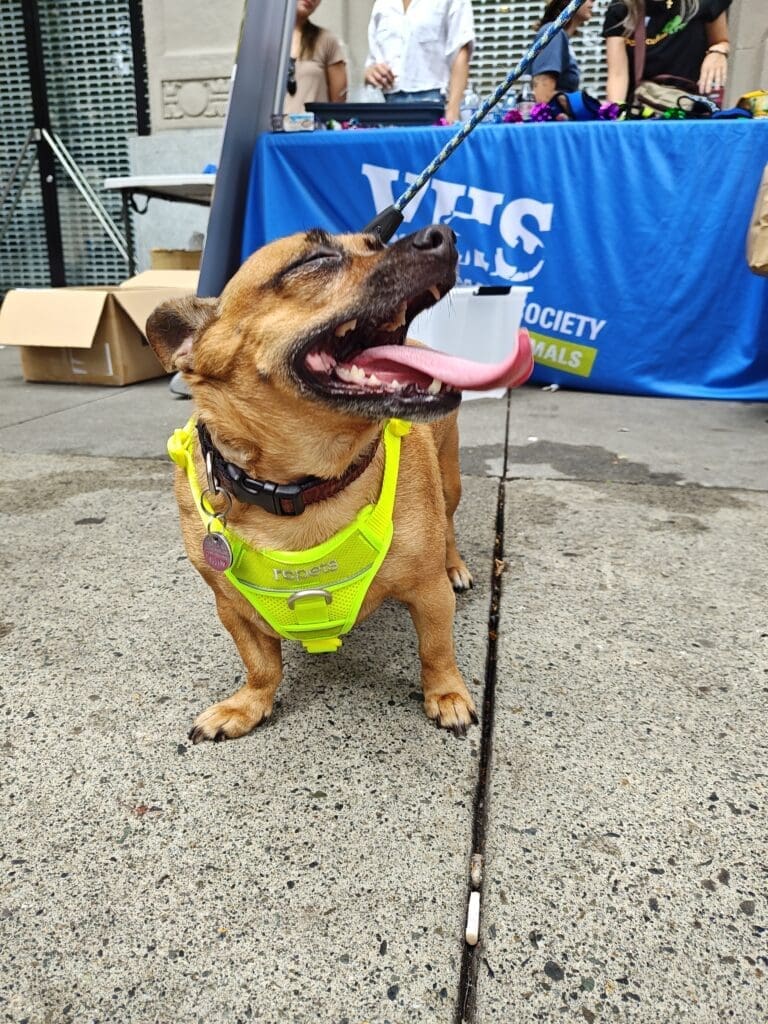
I spoke with a man who carefully fitted new shoes onto his dog’s feet, telling me how she would now be safer walking around on the sidewalks. As one person switched her dog’s collar for a well-fitting harness, she turned to me and said, “You folks are angels.” A sweet pup walked over carrying a new toy in his mouth and rested his paws on my knee when I bent down to greet him. His tail wagged until he and his smiling guardian rounded the corner out of sight.
The Downtown Eastside is one of Canada’s most placed-at risk communities, where many residents spend their days on the streets. Folks are either unhoused or seeking relief and community away from the under-resourced single room occupancy buildings (SROs) where they live. Many people are living on extremely limited incomes, like disability assistance or pensions, and can’t afford the ever-rising cost of living in our city.
In the heart of the Downtown Eastside, where life’s hardships often loom large, there’s a remarkable testament to love and resilience in the form of pet guardians. Each year, I hear stories of connection, family, sacrifice, and unconditional love from people with pets. I have heard people say they didn’t know how they would afford groceries that week, but they had bought a new bag of pet food with their last $30. In turn, their animals provide companionship and joy that helps get them through difficult days.
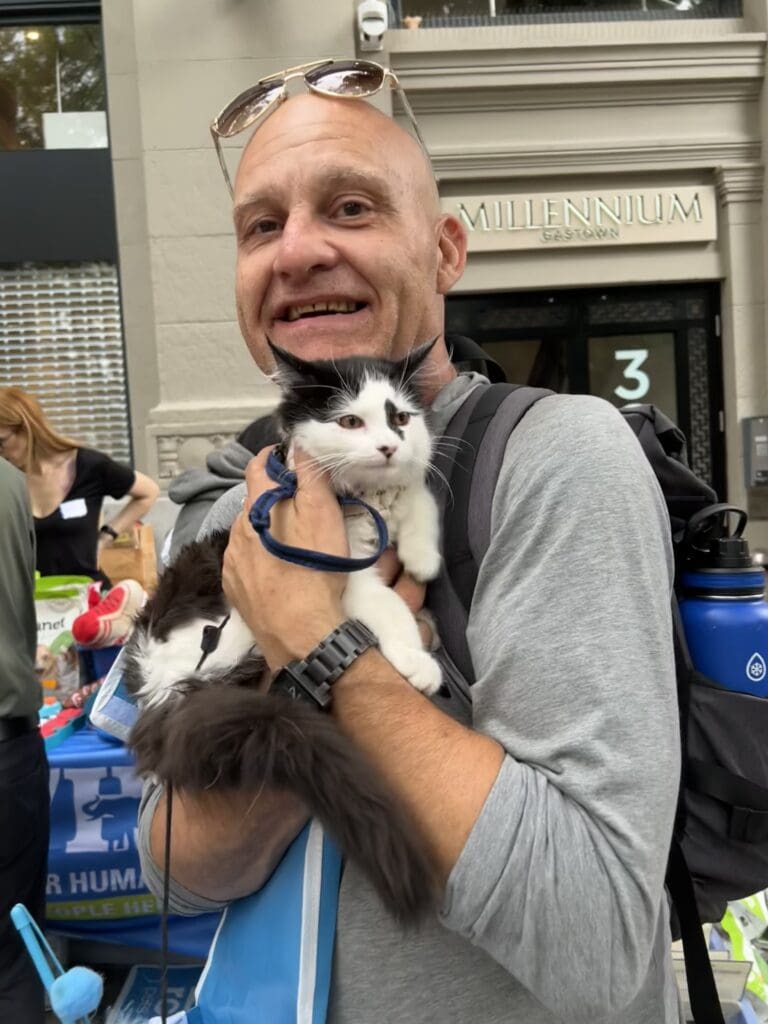
A youth who stopped by the event shared that she had been precariously housed with roommates for several months. Recently, she lost her housing because of having a dog. She chose to keep her beloved companion with her rather than to be housed without him. She is not alone in this difficult decision; unhoused individuals who have pets are often forced to choose between shelter and their animal companions and, as a result, are more likely to sleep unsheltered than those without pets.
For a long time, a common public opinion has been that pet guardianship should be limited to people deemed wealthy enough to “afford” it. But human-animal families come in all shapes, sizes, and income levels. The “don’t get a pet if you can’t afford the vet” mentality ignores circumstances beyond a pet guardian’s control, while dismissing the profound trauma that both pets and their guardians can be subject to when forced to separate. It also does not account for the many animals who come into their guardians’ lives unplanned.
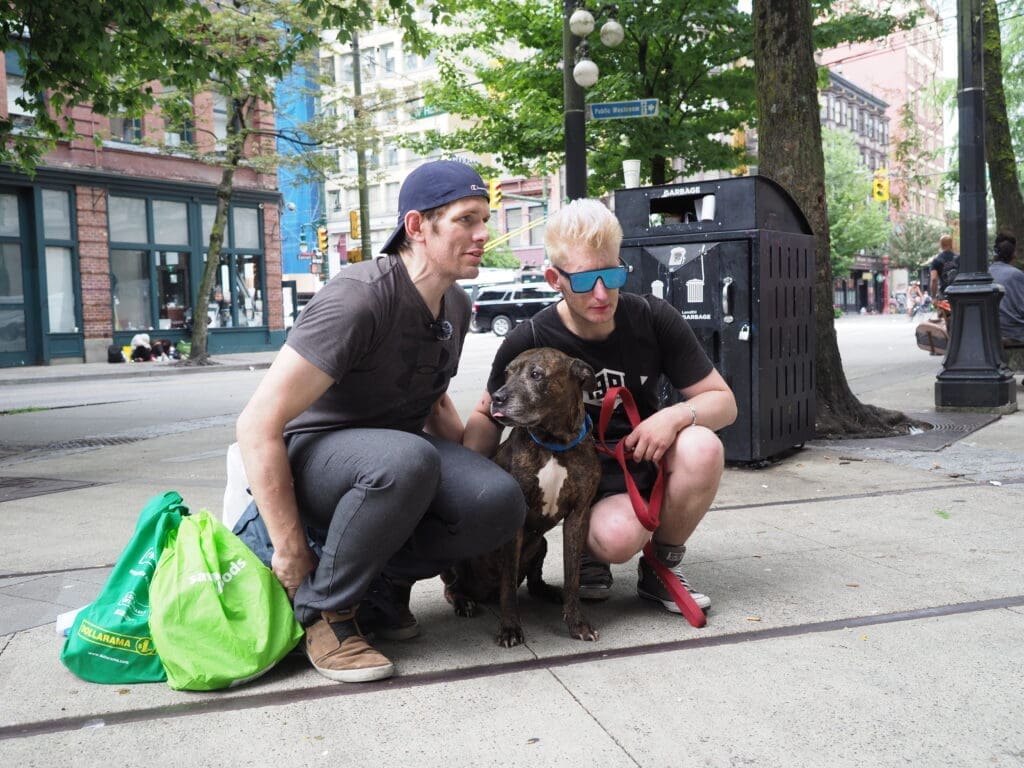
One couple I spoke with had taken in a dog and her litter of puppies twelve years earlier from a friend who could no longer care for them. They spent long nights caring for the newborns and ensuring they were all receiving enough food. Eventually, they rehomed all but one of the dogs. The runt of the litter, Remy-Roo, became like their own baby. When she was afflicted with a life-threatening pyometra infection before they had a chance to have her spayed, they scraped together funds for her emergency surgery. As I saw the three of them together, Remy-Roo snuggled into them, licked their faces, and looked at them like they were her whole world. Her bright eyes and slightly greying fur spoke of a lifetime of happy memories.
Their story – taking in a pet from someone who didn’t have the capacity to keep their animal at home anymore – was echoed by nearly everyone I spoke with at Because They Matter. A man had taken in a cat from his ailing mother. A woman was regularly watching and walking a dog whose senior guardian had limited mobility. A man cared for his neighbour’s dog each time she had to work.
Research tells us that this phenomenon is well understood by people from low-income communities. In a recent study, one participant stated, “A lot more people who live in poverty or are low-income are more willing to rescue animals, because there’s this greater sense of community.”
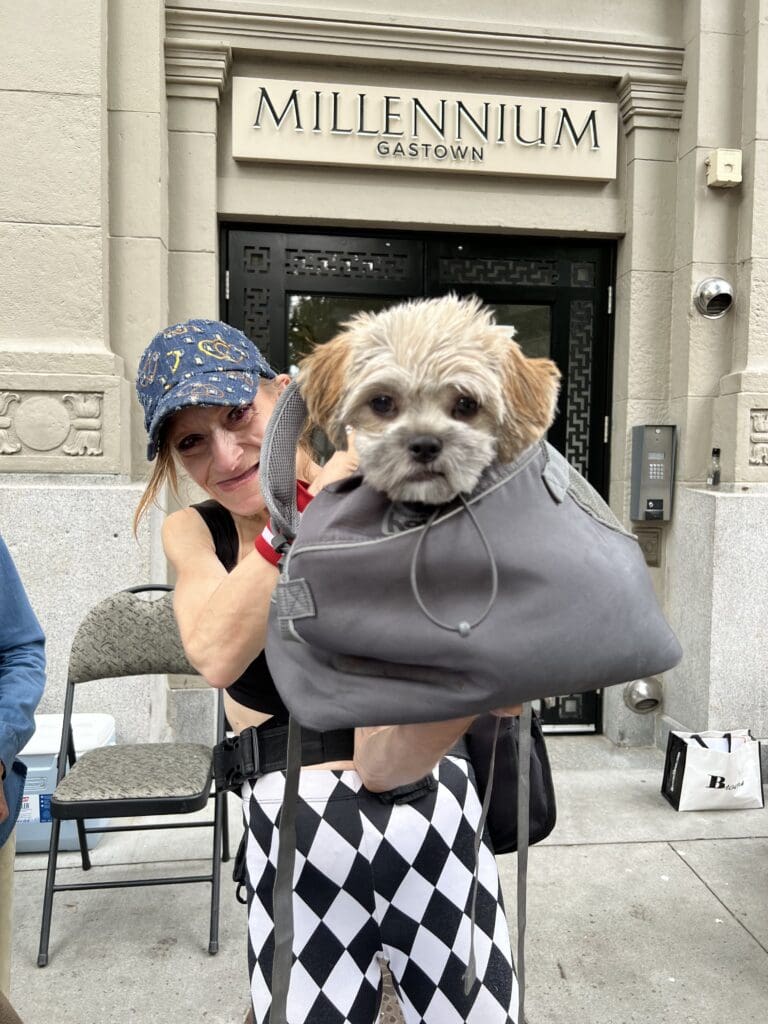
This mutual aid within the community is sorely needed. In the wake of rising costs of living, people living in poverty face a growing number of barriers to keeping their pets. Financial struggles continue to be one of the top reasons people surrender their pets to shelters. And with animal shelters across Canada still struggling to meet the surge in demand, there is often nowhere for animals to go.
The solution for animals in loving, low-income families is not to hand them off to people with more resources, but to make more resources available to the people who already care for them.
The Vancouver Humane Society’s McVitie Fund program is one such resource. The program provides life-saving veterinary support to pet guardians living on a low income, saving them from the heart-wrenching decision of watching their pet suffer or giving them up to get the help they need to survive. Demand for the program has skyrocketed over the past five years, rising from about one animal helped each week in 2019 to an average of 15 each week in 2024.
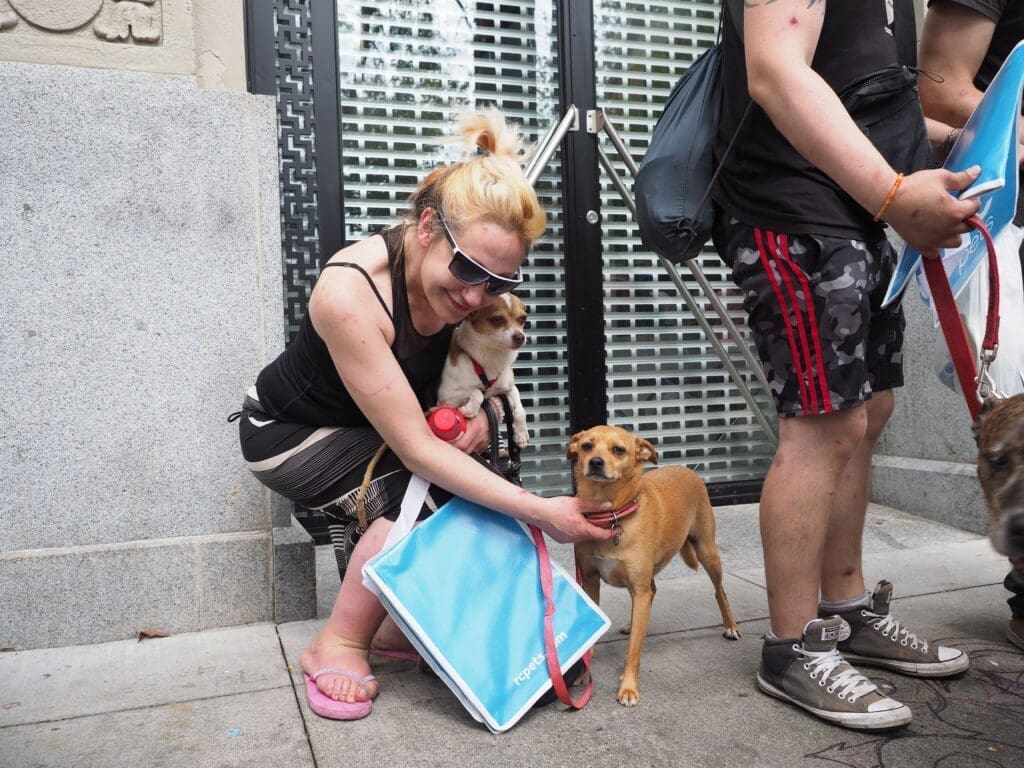
The stories I heard this weekend are a testament to the deep, unwavering commitment that loving guardians in the Downtown Eastside have to their animals, despite facing their own hardships. These animals are essential members of the community; they are family members who provide love, companionship, and a sense of purpose.
By embracing a culture of empathy and support, we can ensure that these human-animal families stay together, because they matter.

